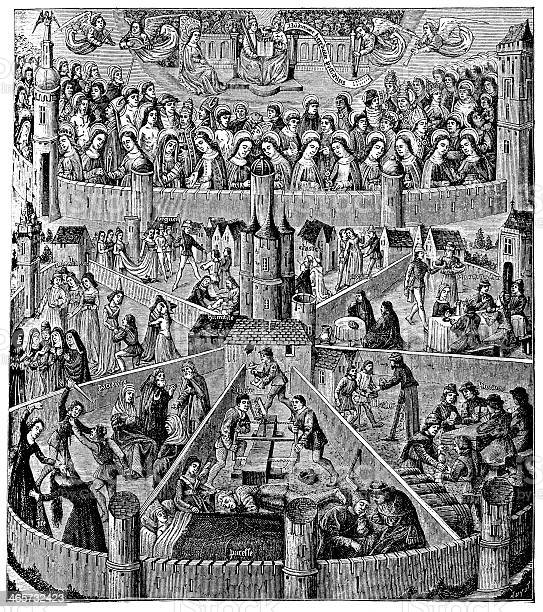Ascension Is Not Desertion
Rev. Marcel Divine Emeka Okwara, CSsR
Feast of the Ascension of the Lord
St. Alphonsus Catholic Church, Brooklyn Center, MN
Sunday, May 29, 2022
What does the Feast of the Ascension of Jesus mean to you? Is it the celebration of the day that Jesus goes up to the sky, disappears and leaves us? Shockingly, that is what many Christians believe the Ascension of the Lord is. But the problem with that notion is that it undermines and misses much of the point of the New Testament. How come? The Acts of the Apostles is Volume Two of St. Luke’s work; Volume One is what we call the Gospel of Luke. In Volume One, which is the Gospel, Luke recounts everything Jesus had done and taught in his historical body up to his Resurrection. In Volume Two— the Acts of the Apostles, he narrates what Jesus continues to do now in his mystical body— the Church. That means the Lord’s preaching, his miracle working, ministry, sacrifice was not the end, rather, the beginning of something. What is recorded in the Gospels is the beginning of something that is now continuing in the Acts of the Apostles. This is why the viewpoint of Ascension as Jesus going away is precisely wrong. Ascension is not the Feast of Jesus going away. It is not the Feast of waving and saying, “Goodbye Jesus, see you again when you return.”
Now Luke tells us that during the 40 days that followed the Resurrection, Jesus spoke to his disciples about the kingdom of God. This should not surprise us. Why? It was the dominant theme throughout the ministry of Jesus. From the moment he appeared on the hills of Galilee, what was on his lips was the language of the Kingdom of God. What does that mean? It means the coming of God to reign on earth as He reigns in heaven. Think of heaven as the realm of God, and earth as the realm of nature and human beings. The Kingdom of God means that God is coming to reign as King on earth as He already reigns in heaven. This is what the Old Testament is about. The Law (Torah), Prophecy, Temple, sacrifice were all means by which heaven and earth were meant to come together. What Jesus announces is the fulfillment— the time of fulfillment is now. The Kingdom has come; the reign of God has broken in. So, the life and ministry of Jesus, which come to a crescendo in the Resurrection is the moment when this wonderful reign commences.
In Volume Two, in the Acts of the Apostles, through the ministry of the Apostles of Jesus the reign of God will continue and grow and deepen and spread. Through the acts of His Apostles— Peter, James, John, you and me, the Kingdom becomes more and more established, this reign of God upon the earth will grow and spread. Notice this! Jesus tells the Apostles not to leave Jerusalem until they receive the promise of His Father. What is He referring to? The Holy Spirit! Jesus says to them, “John baptized with water, you will be baptized in the Holy Spirit.” And when you read the Acts of Apostles, you will notice how often the Holy Spirit is referenced. Jesus is acting through the Holy Spirit and impacting His Kingdom on the earth.
Check this out! Before His Ascension, the disciples asked Jesus a puzzling question, “Lord, are you at this time going to restore the kingdom to Israel?” Now their question is a very Jewish question. They recognized that Jesus risen from the dead is the true King. He is the new David. He is the long awaited Messiah. As pious Jews, they know that the Messiah’s job description was to restore the kingdom of David. To their question Jesus answers, “It is not for you to know the times or seasons that the Father has established by his own authority. But you will receive power when the Holy Spirit comes upon you, and you will be my witnesses in Jerusalem, throughout Judea and Samaria, and to the ends of the earth.” Fascinating lines, isn’t it? What the Lord is basically saying is this: it is not for you to know the exact times or seasons when the Kingdom of God will be realized in its fullness. So, focus your attention on the fact that the power of the Spirit is coming upon you, which will make you His witnesses wherever you are. Therefore, our job is to realize we have been given power and the Holy Spirit to be witnesses to Jesus. In a nutshell, find your role in the theo-drama. That’s what Jesus is saying.
So, the next time you read that Jesus was lifted up, and a cloud took him from their sight, don’t interpret it as Jesus going away. No! Jesus didn’t go away. Rather Jesus is assuming His place in heaven so that He might direct operations on the earth. He didn’t go away. He didn’t detach from us. He went to the heavenly place so that He might universally command the work of His Church. That’s the Ascended Jesus. In the creed we recite that Jesus ascended and took His seat at the right hand of the Father. That’s a symbol of kingly power. He’s seated as ruler, as governor, and from His seat in heaven, He directs operations on the earth. You and I, as His apostles filled with the Holy Spirit have the privilege of participating in His work of bringing about the reign of God on the earth. This is the meaning and power of this great Feast of the Ascension of the Lord.






